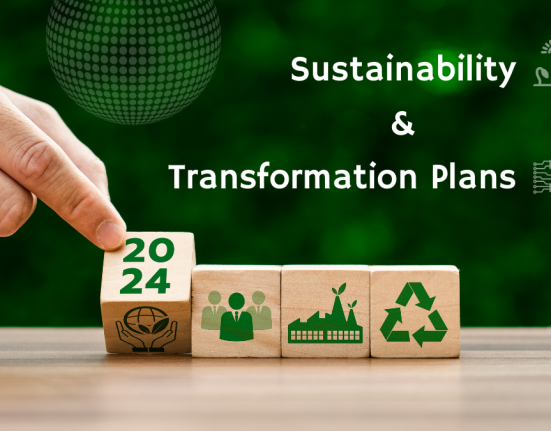In today’s rapidly changing world, the importance of sustainable agriculture cannot be overstated. It has emerged as a critical solution to address the challenges posed by climate change, population growth, and diminishing natural resources. Modern farmers, who are at the forefront of food production, are increasingly realizing the significance of adopting sustainable practices that promote ecological balance, economic viability, and social well-being. This comprehensive guide aims to delve deep into the key principles and practices of sustainable agriculture, providing valuable insights to help farmers unleash the full potential of this transformative approach.
The Essence of Sustainable Agriculture
At its core, sustainable agriculture is a holistic approach to farming that seeks to create a symbiotic relationship between the environment, society, and agricultural productivity. Unlike conventional practices that exploit resources for short-term gains, sustainable agriculture focuses on long-term stewardship and conservation. The objective is to ensure that the land and its resources are used in a way that sustains productivity while preserving the natural ecosystem. Here are the core elements that define sustainable agriculture:
1. Biodiversity Preservation
Preserving biodiversity is at the heart of sustainable agriculture. It entails cultivating a diverse range of crops, including native and traditional varieties, and protecting and restoring natural habitats within and around farmlands. Biodiversity not only enhances resilience against pests and diseases but also contributes to soil fertility, pollination, and water conservation.
2. Soil Health Enhancement
Healthy soil is the foundation of sustainable farming. Techniques like crop rotation, cover cropping, and organic matter incorporation are employed to maintain soil structure, prevent erosion, and promote nutrient-rich soil. By reducing the use of chemical inputs, farmers can minimize their environmental footprint and enhance the quality of their produce.
3. Water Management
Efficient water management is crucial for sustainable agriculture, especially in regions facing water scarcity. Sustainable farmers adopt practices such as drip irrigation, rainwater harvesting, and mulching to optimize water usage and reduce wastage. By utilizing water resources wisely, they ensure the sustainability of both their farms and surrounding ecosystems.
4. Climate Resilience
Climate change poses significant challenges to agriculture. Sustainable farming practices focus on building resilience to extreme weather events and unpredictable climates. This includes using climate-resistant crop varieties, adopting agroforestry techniques, and implementing sustainable pest management strategies. By adapting to changing climate conditions, farmers can maintain productivity and secure their livelihoods.
The Benefits of Embracing Sustainable Agriculture
The shift towards sustainable agriculture brings forth a myriad of advantages that contribute to the prosperity of farmers and the environment:
1. Long-Term Profitability
Sustainable practices may require an initial investment, but they lead to long-term cost savings. By minimizing dependence on expensive chemical inputs and optimizing resource utilization, farmers can achieve higher profitability in the long run. Moreover, sustainable farming can open up new markets and opportunities for eco-conscious consumers.
2. Environmental Conservation
Sustainable agriculture significantly reduces the negative impact of farming on the environment. It minimizes soil degradation, water pollution, and greenhouse gas emissions, fostering a more sustainable and cleaner ecosystem. By safeguarding natural resources, sustainable farmers contribute to the preservation of biodiversity and the protection of endangered species.
3. Enhanced Resilience
Sustainable farming methods enhance the resilience of agricultural systems against climatic variations and natural disasters. This stability ensures a more secure livelihood for farmers and helps maintain a stable food supply chain. By diversifying crops and adopting climate-smart practices, farmers can mitigate risks and bounce back from challenging circumstances.
4. Community Empowerment
Adopting sustainable practices often strengthens the social fabric of farming communities. It encourages knowledge-sharing, cooperation, and collective decision-making, leading to stronger and more tightly-knit communities. Farmers can tackle shared challenges and create positive social and economic impacts within their locality by working together.
Implementing Sustainable Agriculture: Practical Tips
Transitioning to sustainable agriculture requires careful planning and gradual implementation. Here are some practical tips for modern farmers looking to embrace sustainability:
1. Educate Yourself
Stay informed about the latest developments and best practices in sustainable agriculture. Attend workshops, seminars, and training programs to deepen your understanding of ecological farming techniques. Knowledge is a powerful tool in implementing sustainable practices effectively.
2. Start Small
Embarking on the path of sustainability can be overwhelming. Begin by implementing sustainable practices on a small scale and gradually expand as you gain confidence and experience. Starting small allows for experimentation and learning from mistakes.
3. Seek Expert Advice
Consult with agricultural experts, agronomists, and experienced sustainable farmers to get valuable insights and personalized recommendations for your specific farming context. Expert advice can help tailor sustainable practices to suit your farm’s unique characteristics and challenges.
4. Collaborate with the Community
Join or form local farming networks and cooperatives to share knowledge, resources, and experiences. Collective action can lead to more significant positive impacts on the community and the environment. By collaborating, farmers can pool resources and support each other in their sustainability journey.
Conclusion
Sustainable agriculture is not just a buzzword; it is a transformative approach that has the potential to revolutionize modern farming. By embracing sustainability, farmers can unlock the power to cultivate the land while preserving its natural resources for future generations. Let us take the lead in safeguarding our planet and creating a brighter, more sustainable future for agriculture and humanity alike.
Remember, sustainable agriculture is not just a choice; it is a responsibility we owe to the earth and the generations yet to come. So, let us sow the seeds of sustainability and reap a bountiful harvest of ecological balance, economic prosperity, and social well-being. Happy farming, the sustainable way!








